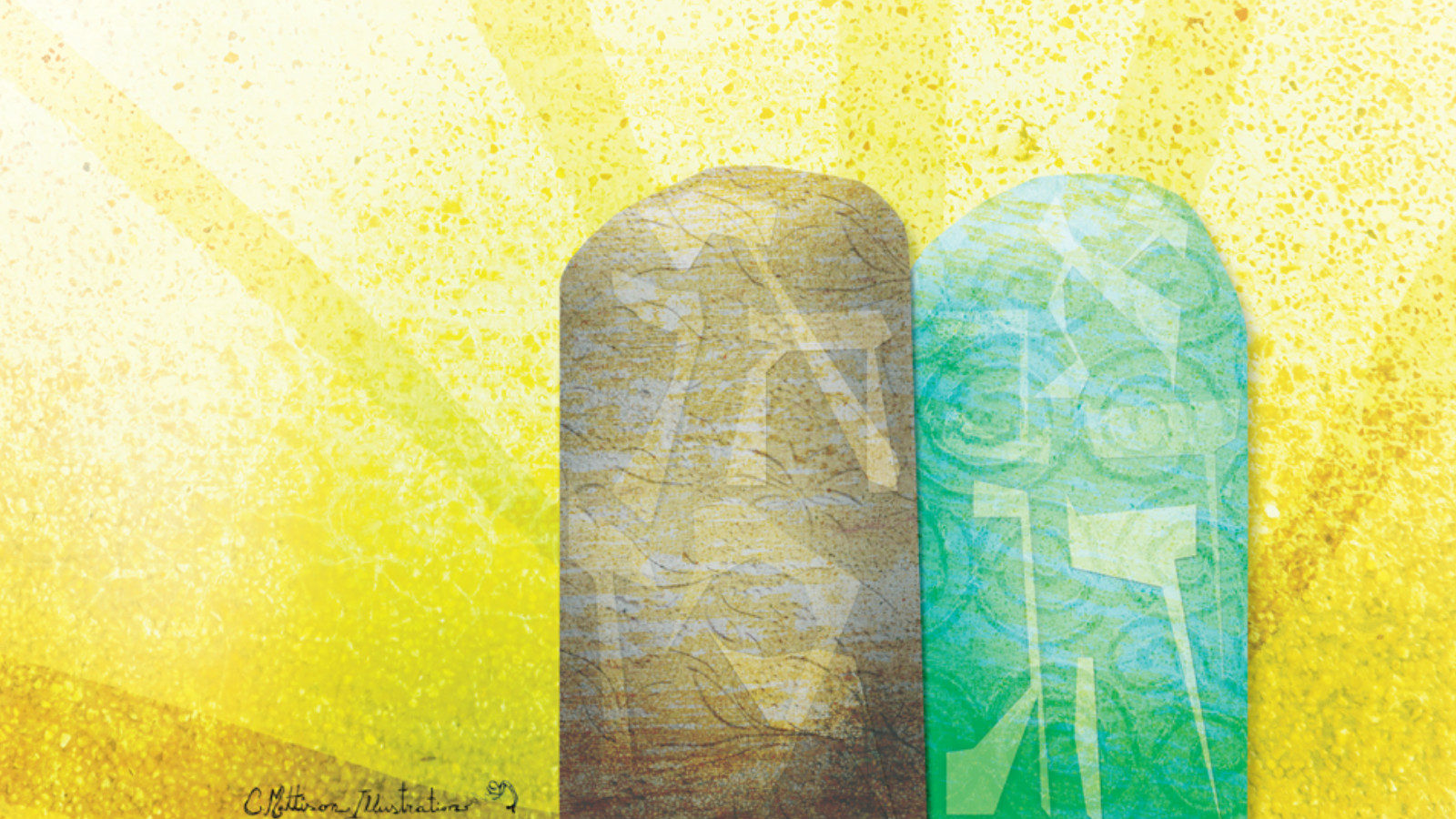Commentary on Parashat Yitro, Exodus 18:1-20:23
“And Moses went up to God.” The great event, toward which all of creation moved from the hour of its inception, was about to take place. The entire universe was hushed and attentive to the sublime drama that was about to unfold in the wilderness of Sinai.
In view of the vivid circumstances surrounding the Divine Revelation, it is most disconcerting that its substance rapidly dissipated. For shortly after Sinai, the Hebrews create a golden calf and Moses, learning of it from atop the mountain, shatters the tablets containing the Ten Commandments. What a magnificent beginning! What an abysmal ending!
Where in lay the difference between the first set of tablets, which were broken, and the second set, which Moses later fashioned and which remained whole? Why were the latter more enduring? Why were they received in sincerity by the Jewish nation?
Nothing More Beautiful Than Modesty
Rashi comments that the first tablets, which were given amid tumult, thundering and a great assembly, were affected by the evil eye, whereas, the second tablets, which were given under more modest circumstances, were able to endure. There is nothing more beautiful than modesty.
With your help, My Jewish Learning can provide endless opportunities for learning, connection and discovery.
But while this teaching of Rashi contains a very important moral lesson, it still does not fully explain the circumstances surrounding the second tablets. Why did God command Moses to hew these second tablets instead of giving them to him ready-made from Above, as He had with the first pair?
And if it was, for some reason, essential that Moses hew them by himself, could he not have done so at the top of the mountain? Why did God instruct him to hew them at the foot of the mountain and carry them up to the top? It is precisely this incidentthat explains the durability of the second tablets.
Ready-Made Tablets
The first tablets were given to Moses ready-made by God. They were given from Above to be carried down. God made his revelation but the Jewish people were not spiritually prepared to fully appreciate and receive it. In a great moment of inspiration, they had exclaimed, “We will do and we will listen.” But the moment passed. Backsliding was the result. Confusion and disgrace followed.
The second tablets, on the other hand, were brought up from below. They were hewn by the hand of man. The Jewish people, purged and cleansed by the unfortunate incident of the Golden Calf and its aftermath, were, at this point, spiritually ready to receive the message of the tablets. They had prepared themselves adequately for its reception. They elevated themselves to be suitable receptacles for the word of God. God inscribed the tablets, but Moses prepared them and brought them up to be inscribed. These tablets could endure.
Frequently people complain, Why is Judaism meaningless to me? It doesn’t move me. I am not affected by its message. When I attend services, it leaves me cold. Nothing happens to me. The rabbi, the cantor do not inspire me sufficiently.”
These people mistakenly view religion as something external to themselves, as something separate and apart. They do not realize that one must prepare himself to receive the message of God. “Hew for yourself”–make yourself a proper receptacle to receive God’s word. Then it will affect you.
Attending services is not like attending a show or theater. Services require active participation, not merely passive observation. The rabbi and cantor cannot pray and be devout for you. Prepare your own tablets and ascend the mountain. Then God will inscribe his word upon them.
Provided by the Orthodox Union, the central coordinating agency for North American Orthodox congregations.



